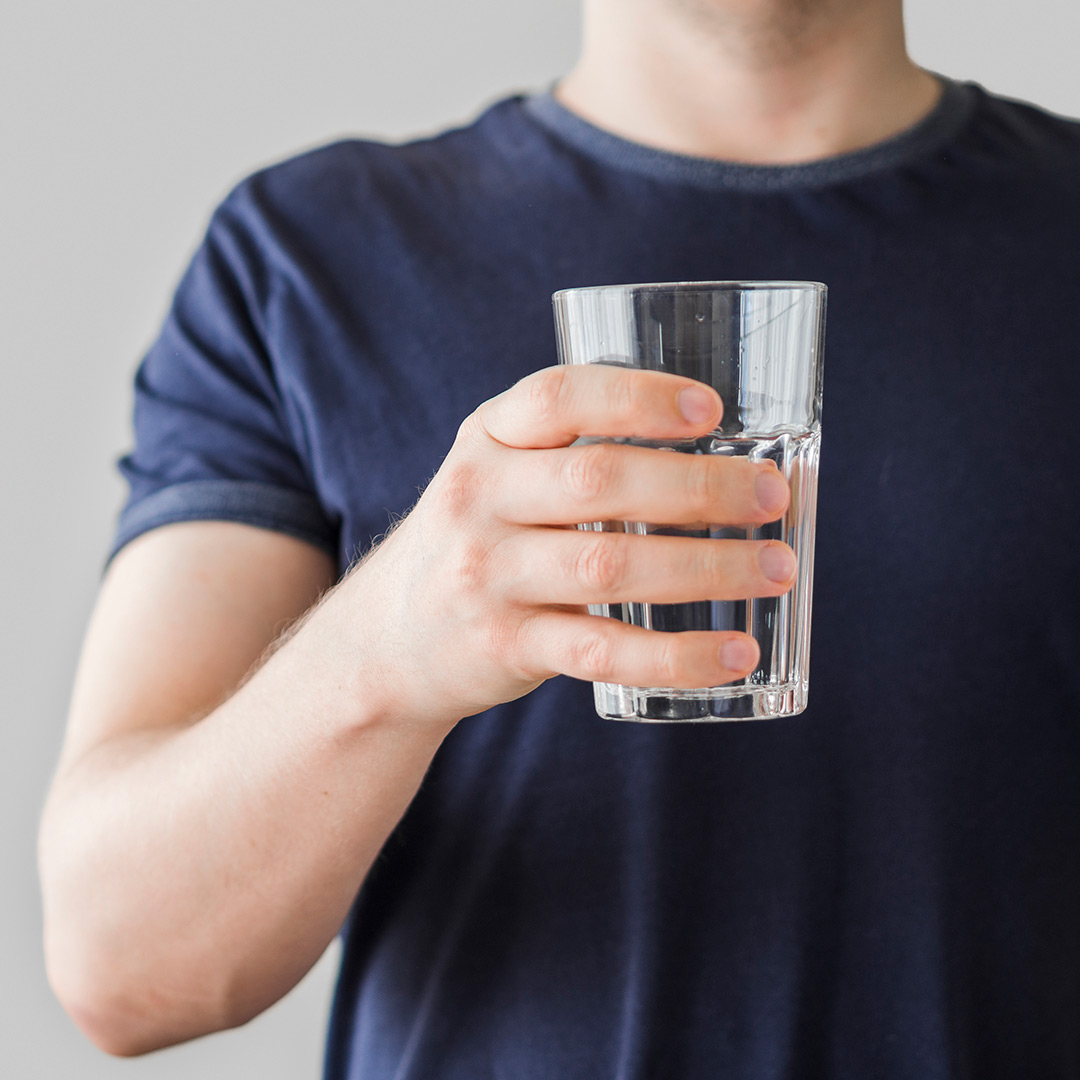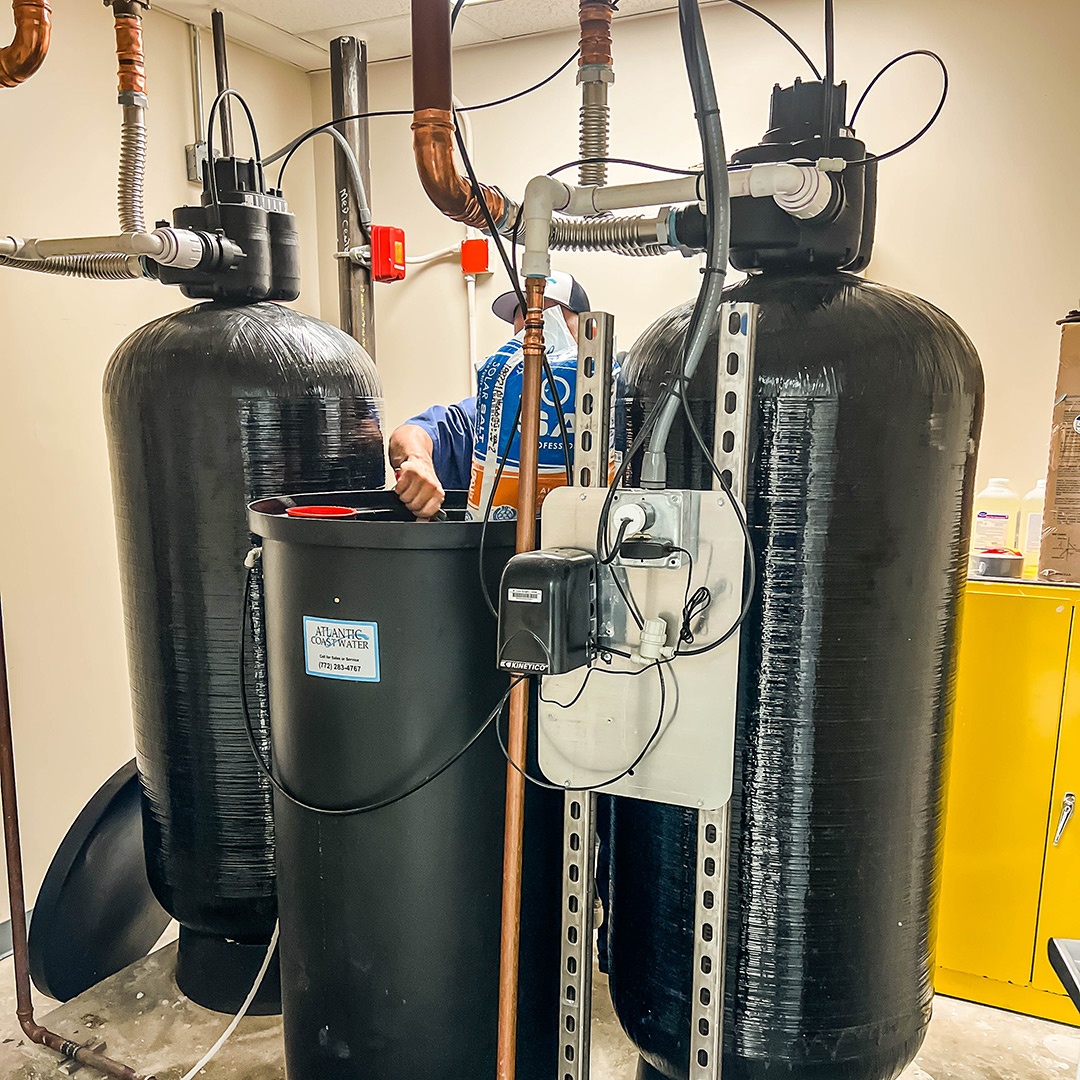Common Well Water Contaminants
Most homes that have wells do so because they’re located in areas with no municipal water service. Other homes have wells because the owners prefer not to use water from a municipal source. In both cases, a well can be an abundant source of healthy water.
 But not always.
But not always.
Atlantic Coast Water Clinic of South Florida would like to share some helpful information about what well-water contamination is and how to address it.
Is any water clean and safe to drink?
Municipal water providers are required by law to perform the minimum treatments to make their water “safe.” Well water generally isn’t treated by anyone but is touted as “cleaner and safer” than municipal water because it comes from a pure source: the ground.
It’s in the best interests of both public water suppliers and well diggers to build up the safety and value of the water they bring to a home. And most of the time, their claims are fairly accurate: their water is safe to drink.
But is it as safe as you want it to be?
Contaminants common to well water
According to the U.S. Environmental Protection Agency, “commonly found contaminants” in well water include the following:
Microorganisms
Bacteria, viruses and parasites are found all over our planet, as well as in our primary water supplies. Private wells can receive microorganisms from water run-off during a rain or when snow melts. Well water can also be contaminated by seepage from nearby septic systems and underground storage tanks.
Heavy metals
Heavy metals can get into well water from:
- Area service lines
- Plumbing components
- Mining operations
- Oil refineries
- Industrial plants
- Municipal waste-disposal operations
and other sources.
Types of heavy metals, none of which are good for human consumption, that have been found in tested well water include arsenic, cadmium, chromium, copper, lead, selenium and more.
Organic chemicals
Organic chemicals are contaminants from household products and products used in agriculture and manufacturing that enter ground water and can end up in wells.
Examples include pharmaceuticals, dyes and inks, paints, pesticides, disinfectants, various solvents and others. Severe health problems can result from consuming these contaminants in sufficient amounts.
Well water is also susceptible to:
- Uranium
- Radium
- Fluoride
A three-part solution
Solving and preventing well water contamination is a three-step process:
- Have your well inspected
Experienced well inspectors can tell you if the well structure has been breached or if there are mechanical problems that need to be addressed.
- Have your well water tested
You can perform your own well-water tests or have a well company or water treatment company do it for you. It’s a good idea to know what you’re putting into your body.
- Clean the water
If the results of the well and water tests aren’t satisfactory, you can solve contamination issues by installing a whole-house water treatment system.

Water filters and water purifiers remove nearly all contaminants from well water and deliver to your home and family water that’s not only safe to drink but also great-tasting and perfect for cooking and cleaning.
Get your best water
Atlantic Coast Water Clinic installs top-line home water treatment systems throughout Port St. Lucie, Fort Pierce, Hobe Sound and other South Florida Communities. Find out more about the benefits of cleaner well water by calling (772) 283-4767 or reaching out with our handy contact form.


 772-283-4767
772-283-4767